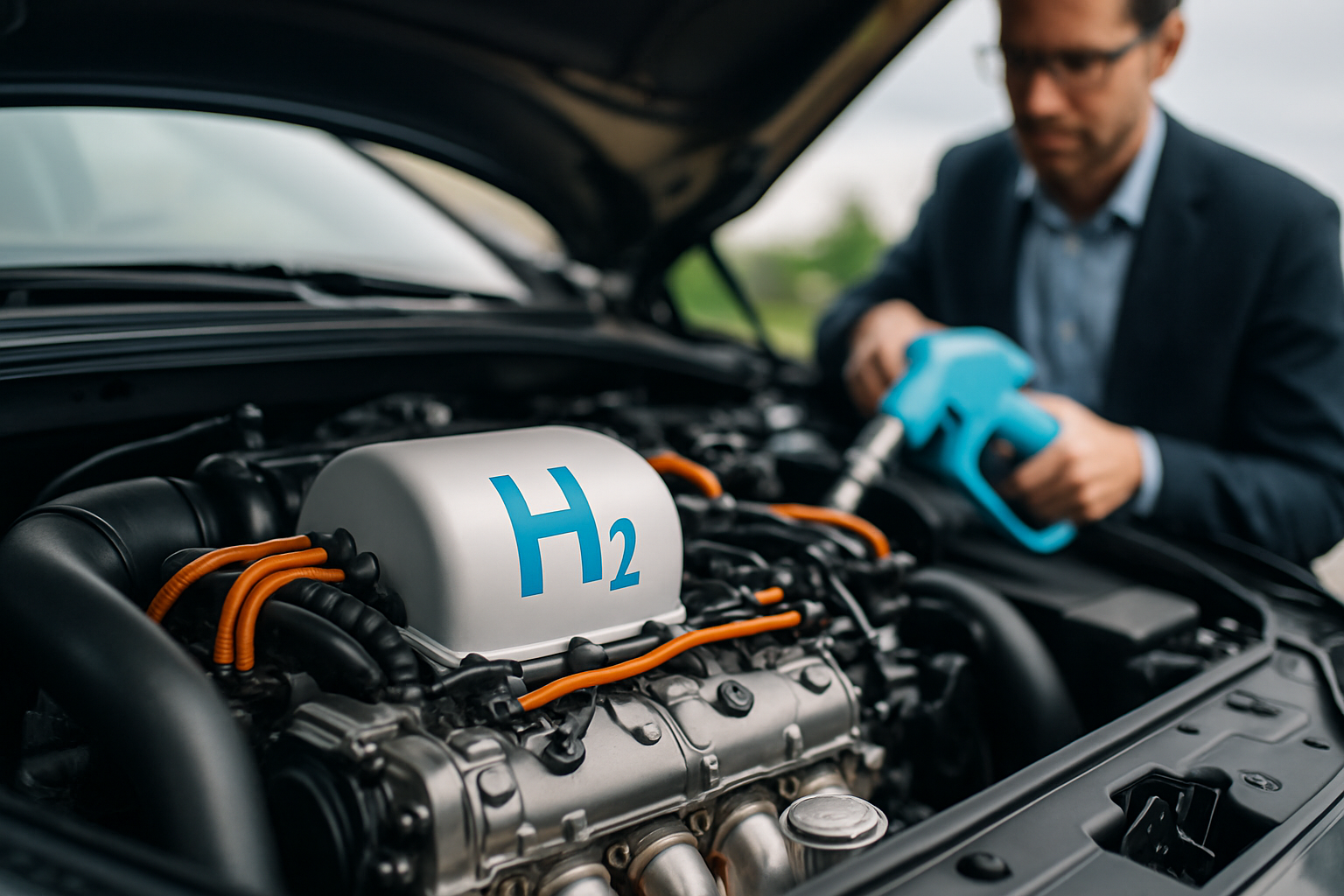Hydrogen Combustion Engines: The Overlooked Clean Power Solution
Amid the fervor surrounding electric vehicles, a promising alternative has been quietly evolving: hydrogen combustion engines. This innovative technology merges the familiarity of internal combustion with the clean-burning properties of hydrogen, offering a unique pathway to sustainable transportation. As automakers and policymakers grapple with the challenges of transitioning to zero-emission vehicles, hydrogen combustion engines present an intriguing middle ground that could accelerate the shift away from fossil fuels while leveraging existing manufacturing infrastructure.

Unlike hydrogen fuel cells, which convert hydrogen into electricity to power electric motors, hydrogen combustion engines directly burn hydrogen in cylinders. This approach allows for quicker refueling times compared to battery electric vehicles and potentially lower production costs due to similarities with existing engine manufacturing processes.
Historical Context and Technological Evolution
The idea of using hydrogen as a fuel dates back to the 19th century, with early experiments conducted by Reverend W. Cecil in 1820. However, it wasn’t until the late 20th century that serious consideration was given to hydrogen as an automotive fuel. The 1970s oil crisis sparked renewed interest, leading to several prototype vehicles.
In the early 2000s, BMW introduced the Hydrogen 7, a limited-production vehicle capable of running on both gasoline and hydrogen. While this dual-fuel approach showcased the potential, it also highlighted challenges such as hydrogen storage and distribution infrastructure.
Recent technological advancements have addressed many of these early hurdles. Improved hydrogen storage systems, more efficient combustion processes, and enhanced engine management systems have made hydrogen combustion engines increasingly viable.
Current Industry Trends and Applications
Several major automakers are now exploring hydrogen combustion technology. Toyota, a pioneer in hybrid and hydrogen fuel cell vehicles, has been testing hydrogen-powered race cars. These high-performance applications serve as testbeds for technology that could eventually make its way into consumer vehicles.
In the commercial sector, companies like Cummins are developing hydrogen engines for heavy-duty trucks and industrial applications. These engines offer the potential for long-range, zero-emission transportation in sectors where battery electric solutions may face limitations due to weight and charging time constraints.
The marine industry is also showing interest, with hydrogen combustion engines being considered for ships and boats. The high energy density of hydrogen makes it an attractive option for long-distance marine travel.
Impact on the Automotive Landscape
Hydrogen combustion engines could significantly impact the automotive industry’s transition to clean energy. By leveraging existing manufacturing processes and supply chains, automakers could potentially accelerate the shift away from fossil fuels without completely overhauling their production facilities.
For consumers, hydrogen combustion vehicles could offer a familiar driving experience with the benefits of zero-emission operation. The quick refueling times and potential for long-range travel address some of the current limitations of battery electric vehicles.
However, challenges remain. The lack of widespread hydrogen infrastructure is a significant hurdle, though it’s one that’s being actively addressed in many countries. Additionally, the overall well-to-wheel efficiency of hydrogen combustion engines is currently lower than that of fuel cells or battery electric vehicles, though ongoing research aims to narrow this gap.
Environmental Considerations and Future Prospects
While hydrogen combustion engines produce only water vapor as direct emissions, the environmental impact depends largely on how the hydrogen is produced. Green hydrogen, made using renewable energy sources, offers a truly sustainable solution. However, much of today’s hydrogen is still produced from natural gas, a process that generates carbon emissions.
As renewable energy production scales up and electrolysis technology improves, the potential for widespread green hydrogen production increases. This could make hydrogen combustion engines an increasingly attractive option for reducing transportation emissions.
Looking ahead, hydrogen combustion engines may play a crucial role in a diversified clean energy landscape. They could complement battery electric vehicles, offering solutions for applications where batteries may be less practical. Moreover, the technology could serve as a bridge, allowing for a smoother transition to hydrogen fuel cells as that technology matures.
In conclusion, hydrogen combustion engines represent a fascinating convergence of traditional automotive engineering and clean energy innovation. As the world seeks diverse solutions to combat climate change, this technology offers a unique pathway that could accelerate the transition to sustainable transportation while building on existing automotive expertise and infrastructure.






